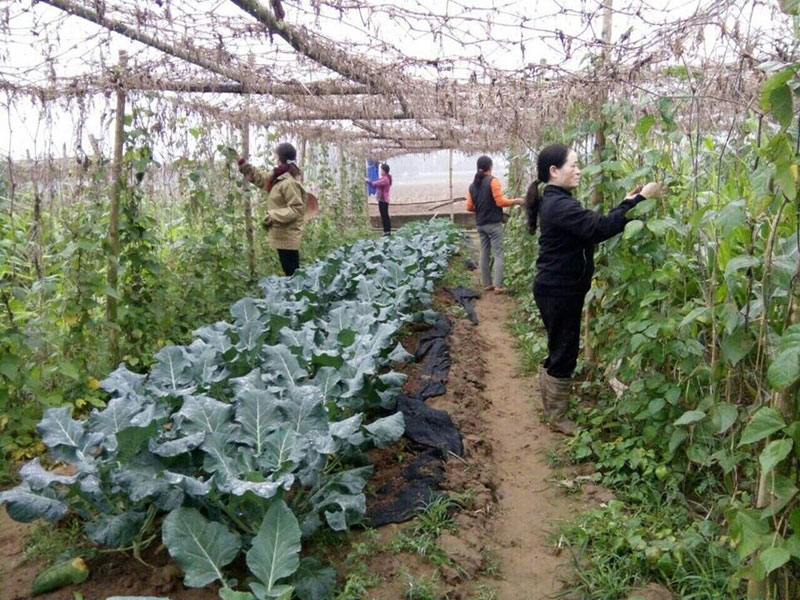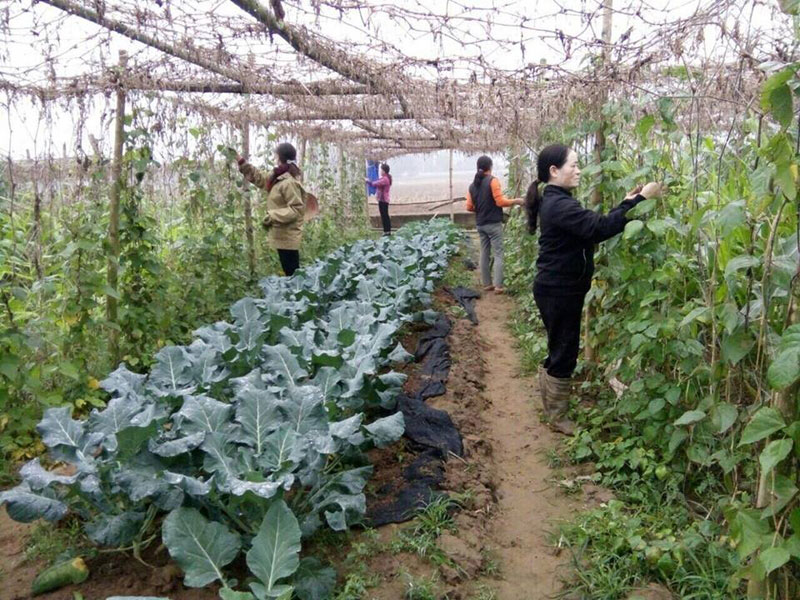



Based on determining the role of the agricultural sector, Lac Thuy district has brought into full resources for crop restructuring. On the ineffectively producing land area, crops of high yield and economic value have been selected as alternative crops such as vegetables and fruit trees, especially citrus trees have brought into full play of their advantages. At present, the area of fruit trees in the district is quite being developed, especially citrus trees with a total area of over 470 hectares. It initially set up many models for high economic efficiency such as planting oranges for the income of over 400 million VND per year, Dien grapefruit farming for the income of more than 250 million VND per year, concentrated in Phu Thanh, Thanh Nong, Lien Hoa, Co Nghia, Thanh Ha town.
The application of technology - science to production has contributed to the increase in the productivity, yield and areas of vegetables, industrial plants with an income of nearly VND120 million / year / ha.
Besides, in recent years, in Lac Thuy district, there has been a gradual development of medicinal plants. Since 2015, the district has carried out the national science and technology project of "Experimental production of some medicinal plants under the GACP guidelines in Lac Thuy district, Hoa Binh province" on an area of 70 hectares with the main crops such as red multiflorous knootweed, gynostemma, and ginseng...
According to the plan to 2020, the district expects to stabilize the rice area of about 3,200 hectares, corn area of over 2,300 hectares. Particularly, the district will pay attention to the development of citrus fruit, custard apples, late longans, increasing the area of fruit trees to 1,200 hectares, of which the area of citrus crops will be 850 hectares, and 150 hectares of longans. Besides, by 2020, the district is trying to have hundreds of hectares for specialized production of safe vegetables.
For industrial plants and vegetables, the district will increase the area of green pumpkins, pumpkins and vegetables, various beans, converting some areas of rice and plant inefficient production to plan for specialized production area.
Mr. Hoang Dinh Chinh, Deputy Director of the Agriculture and Rural Development Department of Lac Thuy district, said: In order to successfully implement the Project of restructuring the agriculture sector, contributing to the socio-economic development in 2018, the district has set a key task, which is specifically to well implement the renovation of over 1,000 hectares of mixed garden to switch to plant trees of high economic value; supporting to connect the markets for product consumption, investing in the development of the processing industry, especially the post-harvest preservation in the modern direction in order to reduce post-harvest losses and raise the added value of products; developing high-quality rice production strongly, accounting for 15-20% of total rice cultivation area per year. It is estimated that in this year, the district will have supported farmers with over 820 million VND for the consumption of commodity agricultural products and supported the development of goods production with the total cost of nearly 4 billion dongs.